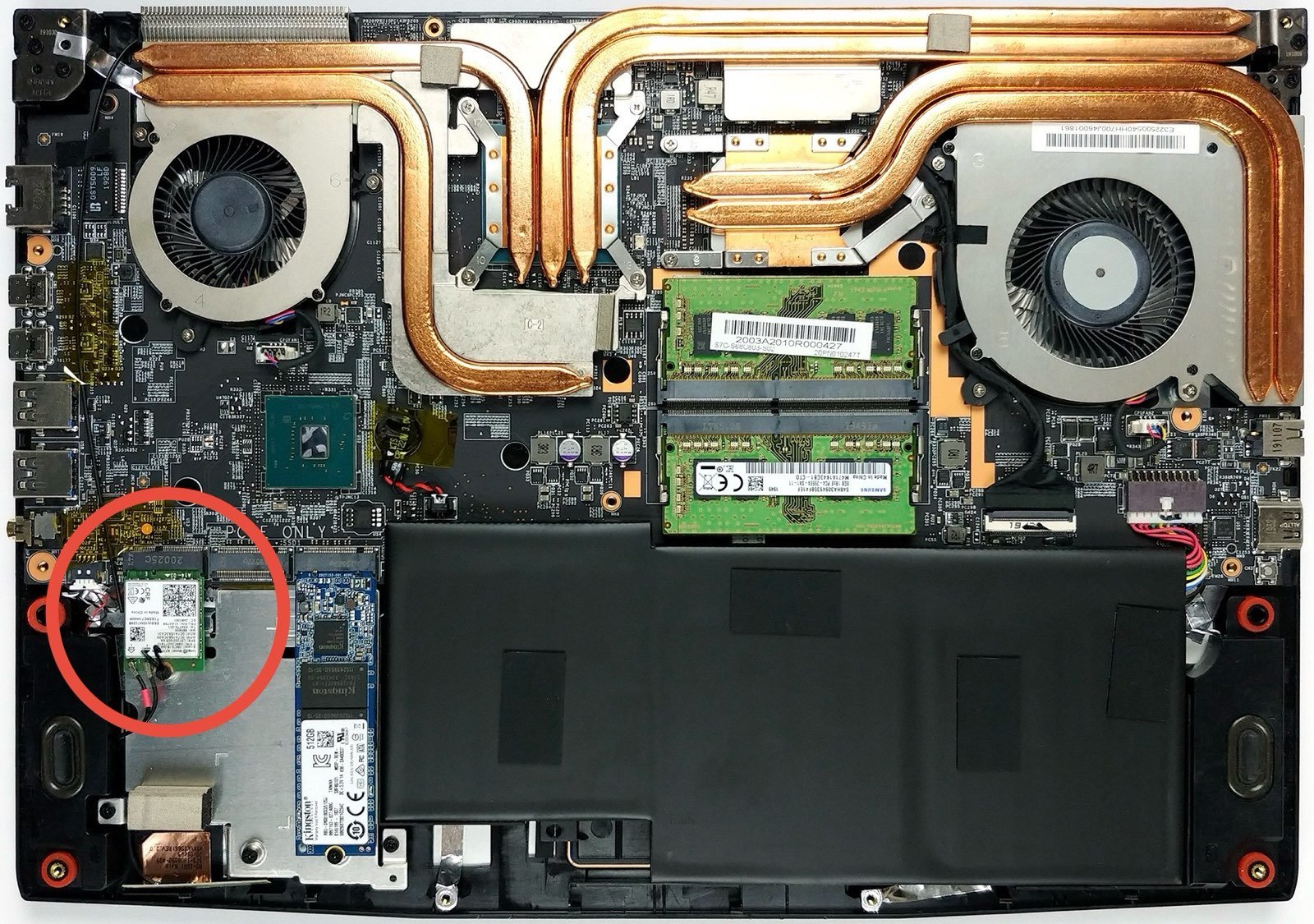I am looking for a laptop (or a tablet with attachable keyboard) that does not come with or allows for physically removing/disabling/destroying of all wireless connectivity hardware. Something cheap, around 200€ would be nice. I would only use this device for word processing, file management, and creating backups on LUKS encrypted drives. Should be able to run gnu-linux.
The closest thing I was able to find was the pinebook by pine64.org, which has killswitches for wifi and bluetooth. Sadly, these are controlled through software and not through a hardware switch.
Does anyone know of a cheap device with hardware killswitches, or a device that allows removing/destroying wifi and bluetooth components on the motherboard (without breaking)?
EDIT 1:
I am looking to buy a new device, not used, and with good enough performance to run a modern desktop environment such as gnome, kde, or cinnamon.
EDIT 2:
Following the advice of some commenters here, I have looked for models that I like, and tried to find a image/video of the motherboard. So far, every motherboard that I could get an image/video of, had the wifi/bluetooth chip soldered onto the motherboard. If anyone knows a brand that offers cheap laptop with modular mainboards, please let me know.
EDIT 3:
Some people here suggested buying an old ThinkPad. I checked for newer models made by the same company (“Lenovo”), and according to their hardware manual, the “IdeaPad” model also allows removing the wifi card, just like the ThinkPad did.
Here is a link to the manual for anyone who is interested (see page 43): https://download.lenovo.com/consumer/mobiles_pub/ideapad_1_hmm.pdf
This solution will work well for my use case and budget. Thanks you all for the advice.
In most laptops you can remove the WiFi/Bluetooth card if you are ok with a permanent solution.

This would be great, thank you. A permanent solution is what I am looking for. I already looked into removing stuff from the motherboard a bit, and I must have misunderstood something. The information I found was suggesting that this would likely result in the device not functioning anymore.
See if you can find guides for “Wi-Fi card replacement” for the model that you are looking into. For guides, try https://www.ifixit.com/
If it is a simple matter of unplugging a card (like the image above), it should be easy enough to undo if something goes wrong. Then instead of replacing the Wi-Fi card, just leave it out.
Dang near every model laptop has a teardown video on YouTube. If you had some models you’re interested in, look for a teardown video and see if the wireless module is socketed.
I can’t think of a modern laptop I’ve owned that didn’t have a socketed wireless card. Maybe one Alienware I owned.
Nah, this is a super common thing for laptops that go into secure areas.
Wireless cards (bluetooth + wifi) go into an m.2 Key E slot on motherboards, so they’re technically upgradeable to newer WI-FI standards. Some desktop motherboards have this as well. Typically, the chip has two thin cables going to the IO panel on desktops to COAX for antennas to connect to.
some laptops don’t have removable wifi cards, few don’t allow you to boot without it installed because of a whitelist
2nd: almost every low-end laptop I used has a module that can be pulled off of the main board to remove wireless features.
Just take out the wifi module. If you need wifi just use a USB adapter. That’s your kill switch.
This. Most WiFi and by adapters are a seperate small card with black and white antennas connected to them. Fairly easy to identify and remove.
You having trouble focusing on your writing bud?
I literally just bought a framework 13 laptop and was poking around in it (because it’s a repairable laptop). It 100% has a removable wireless card, and I was surprised because I assumed those were all soldered onto main boards these days.
Having a removable and upgradable wireless module makes sense given Framework’s ethos. Wifi is being constantly developed with new versions which makes it worthwhile to make upgradable wifi modules. Last time I checked you could even save some money by not including a wireless modules on the Intel models.
Agreed. Now that said, OP didn’t mention WHY he wanted WiFi hardware removed. Due to framework’s philosophy-it would be absolutely trivial to put one back in. Literally five screws.
Like if I was trying to keep a kid off the internet - it would probably fail. I know I’d just buy a card a pop it in when no one was looking. But I’m a rebel like that. :)
My kids would be smart and lazy. USB external wifi card, done 🤣
If you’re running Linux, another solution would be simply blacklisting the WiFi driver from the kernel.
It’s a software solution, but I fail to see any downside to it.just get an older thinkpad and remove the wifi/bt module
You could also remove the antenna if soldered.
why hardware kill switch? with Linux u can disable them and unload the associated kernel modules. is that not good enough for u?
I know you are looking for new but I know in my ThinkPad T480 the wireless card can be easily removed. It’s not that old, 2018. Still runs modern Linux wonderfully…and is well supported. It would be more than enough to do what you wanted. EBay is a good place to find them.
You can open up just about anything and unplug it
Newer Dell laptops I’ve worked on have them soldered on to the motherboard.
Well, most laptops have removable WiFi cards,
but if you want to go the extra mile you could try an early-2000s or late-90s ThinkPad (from back when they were made by IBM).kde casually taking 20 minutes to load
I think you may be responding to the wrong comment
Some ThinkPads have killswitches.
As does the Framework laptops i think…
the former can be bought second hand fairly easily.Disabling it at bios level does not suit your case?
Nitrokey sells laptops that let you remove all wireless connectivity. They are also Qubes OS certified.
The pinebook’s privacy switches (for WiFi/BT, camera, and microphone) operate at the firmware level, the operating system has no control over them
https://wiki.pine64.org/wiki/Pinebook_Pro#Privacy_Switches
The keyboard operates on firmware independent of the operating system. It detects if one of the F10, F11 or F12 keys is pressed in combination with the Pine key for 3 seconds. Doing so disables power to the appropriate peripheral, thereby disabling it. This has the same effect as cutting off the power to each peripheral with a physical switch. This implementation is very secure, since the firmware that determines whether a peripheral gets power is not part of the Pinebook Pro’s operating system. So the power state value for each peripheral cannot be overridden or accessed from the operating system. The power state setting for each peripheral is stored across reboots inside the keyboard’s firmware flash memory.
I think looking at business/enterprise models would give you the best luck, as some of them should use a PCIe Wifi/BT card so it can be easily upgraded, and you would be able to remove that.
Notebookcheck.net often has images of a teardown in their reviews where you can see if it has a removable wireless card.
I have an IdeaPad and I can confirm that I can physically remove the Wifi card.












